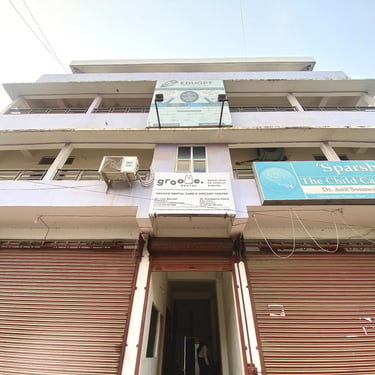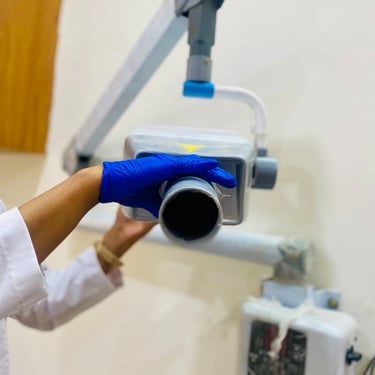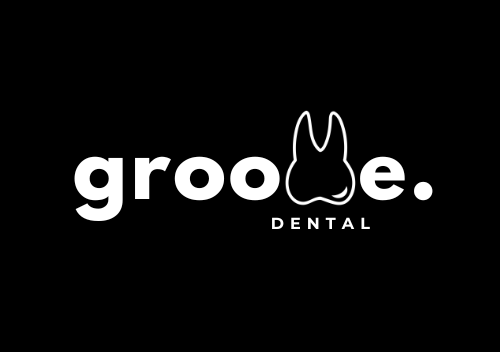Dental Issue? Call +91-97290 23858/+91-87210 11050


Endodontics is a specialized field of dentistry focused on the inner structures of the tooth, including the pulp, nerves, and root canals. The pulp, located at the center of your tooth, contains blood vessels, connective tissue, and nerves that help the tooth grow and develop. However, when this area becomes damaged or infected, it can lead to severe pain and complications if left untreated.
The goal of endodontics is to save your natural teeth by addressing these issues through advanced procedures that restore health, functionality, and comfort. Thanks to modern techniques and technology, endodontic care has become highly effective and minimally invasive, helping patients maintain their natural smile for as long as possible.
Endodontics
What Does an Endodontist Do?
Endodontists are dental specialists who focus specifically on diagnosing and treating problems related to the tooth’s interior. With additional training beyond general dentistry, they become experts in preserving natural teeth through delicate and precise procedures.
Here’s what an endodontist typically does:
Diagnoses Tooth Pain: Endodontists are often referred to when the cause of tooth pain isn’t immediately clear.
Performs Root Canal Therapy: This is the most common endodontic procedure, used to remove infected or inflamed pulp and save a damaged tooth.
Provides Retreatment: If a previously treated tooth develops complications, endodontists can perform retreatment to resolve the issue.
Handles Dental Trauma: They repair teeth injured by accidents or trauma, preserving function and appearance.
Carries Out Surgical Procedures: Procedures like apicoectomy are performed to address infections or problems at the root tip and surrounding structure.
Endodontists combine precision techniques with advanced technologies to treat even the most complex dental issues while preserving your natural teeth whenever possible.




Common Endodontic Treatments We Offer at Groove Dental
1. Root Canal Therapy or Root Canal Treatment (RCT)
Root canal therapy is the most well-known endodontic procedure. It involves removing infected or damaged pulp, cleaning the inner tooth, and sealing the space to protect it from future infections. Root canals are highly effective in saving teeth that might otherwise need to be extracted.
2. Endodontic Retreatment
If a tooth that has already undergone root canal therapy develops new issues such as pain, infection, or structural damage, retreatment can help. This involves reopening the tooth, cleaning out the original treatment, and addressing the problem to ensure long-lasting results.
3. Apicoectomy
For cases where infection persists after a root canal, an apicoectomy (or root-end surgery) may be necessary. This procedure removes the tip of the tooth’s root and the surrounding infected tissue, sealing the end to prevent further problems.
4. Treatment of Dental Trauma
Whether it’s a knocked-out tooth, a fractured root, or injury to the pulp caused by an accident, our endodontists are specially trained to handle these emergencies. Prompt care can often save a damaged tooth and restore its function.
5. Pulpotomy
This procedure is often performed on children to treat tooth decay that has reached the pulp. The infected portion of the pulp is removed, preserving the remaining healthy tissue.
From simple to complex endodontic cases, Groove Dental provides cutting-edge care to ensure your comfort and long-term oral health.
When Should You See an Endodontist?
While general dentists handle many aspects of oral care, certain symptoms require the expertise of an endodontist. Here are some signs that you should seek endodontic care:
Severe Tooth Pain: Intense or lingering pain, especially when chewing, biting, or applying pressure, is a common indicator of pulp damage.
Prolonged Sensitivity: Sensitivity to heat, cold, or sweets that persists even after the stimulus is removed can signal an issue within the tooth.
Swelling or Tenderness: Swelling around the gums or face may indicate an infected or abscessed tooth.
Discoloration of a Tooth: A tooth that appears darkened or grayish could have internal damage or dead pulp.
Cracked or Chipped Tooth: A damaged tooth can expose the pulp, leaving it vulnerable to infection or inflammation.
Preventive Attention: If you’re experiencing any of these symptoms, don’t wait. Early intervention can save your tooth and prevent more serious oral health problems from developing.


FAQs
Q1. Are root canals painful?
A: Root canals have a reputation for being painful, but the truth is that modern techniques make them virtually painless. The procedure actually relieves the pain caused by infection or inflammation.
Q2. How long does a root canal take?
A: Most root canal treatments can be completed in one to two visits, typically lasting 60-90 minutes per session.
Q3. What happens if I delay endodontic treatment?
A: Delaying treatment can lead to more serious infections, abscesses, and even tooth loss. Early intervention is the key to saving your natural teeth.
Q4. Will I need a crown after a root canal?
A: Many teeth treated with root canal therapy require a crown to restore their strength and functionality, particularly molars that need to withstand heavy chewing forces.
Q5. Can a root canal fail?
A: While rare, some root canals may require retreatment due to persistent infection or complex anatomy. Retreatment or additional procedures like an apicoectomy can correct these issues.
Your Oral Health Journey Starts Here
When it comes to maintaining a healthy smile, understanding the different branches of dentistry is a great first step. If you’re curious about the best care for your unique situation, don’t hesitate to consult your dentist. They can guide you toward the specialized treatments you need to achieve lifelong oral health and confidence.
Take charge of your oral health today—schedule your next dental checkup and discover how modern dentistry can work for you!
How to Choose the Right Dental Treatment for You?
With so many types of dentistry available, it’s natural to wonder which one is right for you.
The good news is that you don’t have to figure it out alone. Regular visits to best dentist near you will help keep tabs on your oral health, and they’ll point you toward a specialist if needed. Whether it’s orthodontics for straighter teeth, endodontics for a root canal, or cosmetic dentistry for a smile upgrade, there’s a dental professional ready to meet your specific needs.


Location: 7, Hengrabari Road, Near L. P. School, Lichubagan, Hengrabari, Guwahati, Assam, 781036
Book An Appointment
Call: Dr. Liza Baruah +91 97290 23858 / Dr. Sunayana Dutta +91 87210 11050
Email: groove.dental25@gmail.com
Copyright ©2025, Groove Dental Care & Implant Centre. Best Dentist in Guwahati for Kids and Adults. All Rights Reserved.
